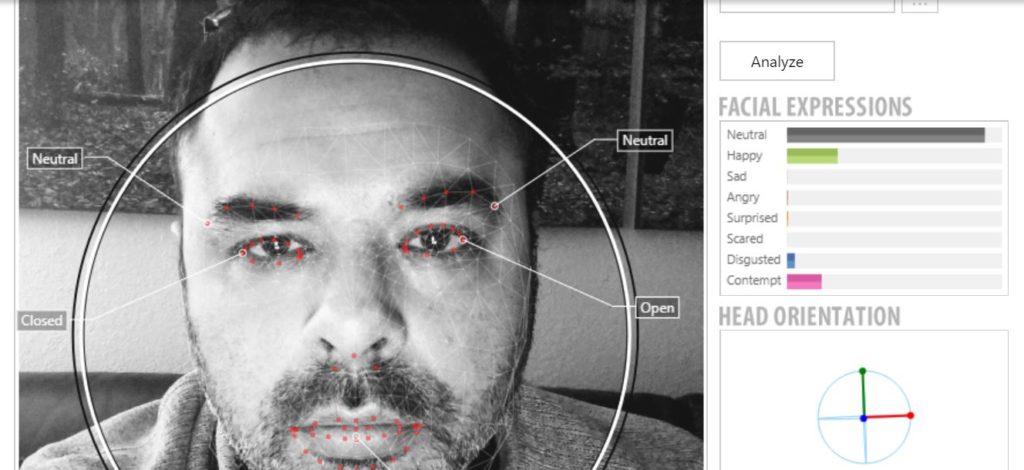From your handshake, to your feet, to your face, your body language may be making you stand out; literally.
You know how important body language can be, but do you pay attention to yours? Minding your body language takes practice, and once you master paying attention to your non-verbals, you’ll experience an enhanced level of communication and connection with everybody in your team.
Why is body language important for team collaboration?

“A rising tide raises all boats” –This is the silent motto of high performing teams everywhere.
A team that understands the importance of body language communication tends to work better and more united. They work for common goals and visions. They understand the personality differences within their team. But even more important, they are aware of their own individual non-verbal communication.
When you are a part of teams like these, you know what to do with your hands, feet, eyes, and face during a meeting. You have an overall understanding of how others perceive you at any given moment, and take action towards the improvement of your current body language to maximize its impact.
Let’s dig deeper into 5 body language actions that could be making YOU the odd one out in your team.
1. You have Resting B*#!% Face (RBF)
How many times have you been walking towards the desk of a coworker to talk about your weekend, only to notice their facial expression filled with what looks like anger? Do you still engage them or steer clear?
Many people, suffer from Resting Bitch Face or RBF for short. Although mostly attributed to women (gender bias), males equally suffer from it (Kanye West). You might be one of these people who unintentionally are sending a negative message when your face isn’t moving.
“They feel hesitant to share opinions or ideas with me because they expect I’ll react angrily. But I’m not angry; apparently my face says otherwise.”
People with RBF often tell me that coworkers treat them differently and avoid them at times. “They feel hesitant to share opinions or ideas with me because they expect I’ll react angrily. But I’m not angry; apparently my face says otherwise.” Sadly, I hear stories like these all the time.

If you don’t know whether or not you suffer from RBF, there’s a tool that can help you find out. Https://www.testrbf.com/ allows you to upload a photo and the system will analyze individual aspects of your expression to estimate what expression you might be sending when you are not paying attention to it. Just make sure you upload a photo of you as neutral as possible.
2. You don’t show your hands

Your brain gives a disproportionate amount of attention to other people’s hands, so it is safe to assume that their brains are doing the same thing about yours.
The first thing that your brain notices about a person is their hands, and when it can’t see them it goes into freakout mode. That’s because your brain’s most important priority is to keep you safe, and hands tend to be bearers of weapons that can cause us harm.
Hands can be thought of as “Trust Indicators.” Your brain relies on being able to see people’s hands to know how to react appropriately. Unfortunately, if people’s brains fail to see your hands, they’ll make assumptions about you that won’t always be accurate.
A university study showed that jurors tend to be biased towards a guilty verdict if the defendant keeps their hands under the table. Unfair? Yes, but remember that your brain is only doing this in a self-preservation act.
Something else related to hands that can affect how other members of your team perceive you is your handshake. When you shake hands with a colleague, you allow your brain to relax a bit because it knows that the other person isn’t carrying any weapons that can cause harm. However, a soft and limp handshake can cause the wrong impression about you and make other people see you as weak and unsure.
Gesturing with your hands is extremely important if you want your teammates to remember your stories and presentations better. Think about gesturing when people talk about how big a fish they caught last weekend. Without gesturing, other people’s brains can’t visualize your story and are more likely to forget the message.
However, like a lot of things around body language, there’s a spectrum for gesturing. Too much, and you end up with “jazz hands;” too distracting. Too little, and your message is forgotten or categorized as non-important.
3. Your clothes are inappropriate

When was the last time you showed up at work wearing shorts and a t-shirt? Chances are you wouldn’t do this unless it was a corporate retreat in Cancun, right?
Your brain, as a safety mechanism, tends to trust other people that are more similar to you. That includes the clothes they wear. You are more likely to trust somebody that wears similar fashion to yours, than somebody that has very opposite style to yours.
This doesn’t mean that you can’t be unique with your clothing at work, but brain-wise, you are better off wearing similar and appropriate fashion at work. Feel free to accessorize here and there, just avoid being a peacock trying to show your feathers. Remember the spectrum; there’s too unique and different at one end, and there’s too bland and boring at the other.
Are you wearing very bright, colorful, or noisy earrings? Are you wearing a tie that’s bright with a very crazy not symmetrical pattern? According to studies, people can easily be distracted by these items causing them to miss parts of your story.
“The smell of perfume cologne will cause the brain to go into overdrive.”
Your nose is one of the most sensitive senses you possess, and depending on your life experience, certain smells will be pleasant, while others will cause disgust or even bring back bad memories.
Everybody is different and we all have different thing we associate with certain smells. For some people, smells will cause them to go back in time in their heads and fondly remember grandma’s house during Christmas, while certain smells can cause a person to remember an ex and the memories associated with the relationship. The moral of the story, if you must wear cologne or perfume, do so lightly or you run the risk of making the other person distracted.
4. You don’t make proper eye contact

When it comes to the eyes and body language the internet is full of stories and techniques on what proper eye contact should be.
One of my biggest pet peeves when talking to a colleague, is watching them pullout their phone every time it dings; my son does this too. Technology can bring people that are far away from us, closer, but it can also distant us from the people closest to us.
“Technology can bring people that are far away from us, closer. But it can also distant us from the people closest to us.”
A lot of these issues have to do with lack of eye contact. Your brain has a hidden addiction to Oxytocin, and one of the ways that it gets its fix is from eye contact from the colleague or friend you are talking to.
When a colleague, boss, or friend is talking to you and you don’t make good eye contact, their brain isn’t getting that amazing Oxytocin fix and it starts judging you – “are they bored/uninterested/intimidated/dishonest?” Please keep in mind that eye contact during a conversation is fairly normal and expected in Western societies. Lack of eye contact can make you seem not trustworthy. In Asian cultures and other parts of the world, is not as crucial. So keep these cultural differences in mind in your communication with colleagues.
5. Your feet are pointed away

During my workshops and keynotes I often tell people that I have a “foot fetish.” Just not the kind of fetish you are probably thinking of. I’m fascinated by how unaware people are about their feet positioning during conversations with colleagues.
I can spot people’s intentions and state of mind just looking at their feet when they are in conversation with another person.
Remember what I told you about the brain and how its main priority is to keep you safe? Your feet are extremely important to your brain because when it’s time to run away, we need to be ready. Your brain is still a primal organ at its core – ever heard of “fight or flight” response? When you are being criticized by a colleague or boss, one of your feet will start pointing away from the person in preparation for your escape. Of course, we all now possess the wonderful pre-frontal cortex which makes us think rationally and keep us in place. Can you imagine if every time somebody raised their voice even a little we ran away?
On the other side of the coin, when you are interested in the topic or the person, your feet will reflect accordingly by pointing right at them because there’s no need to escape when you feel safe and interested.
In conclusion
Everything about body language has to always be put into context. Please remember that. There are many many reasons why people may gesture a certain way, lack proper eye contact, or turn their body away from you. Don’t make assumptions based on one observation and try to cluster other non-verbal signals that might tell you what’s really happening.
The great thing about body language mindfulness is that YOU are in complete control of it. If you find yourself with your hands under the table, bring them up. Did you catch yourself distracted and looking away? Turn your gaze back to the speaker. Notice that your feet are pointed away from the person you are talking to? Point them back at them or excuse yourself politely.
“You can’t change the direction of the wind, but you can adjust your sails accordingly”
Remember that your brain is primal at its core, so it will react subconsciously. The beauty is in recognizing these reactions and doing something about it to improve the way your teammates perceive you based on your body language.

